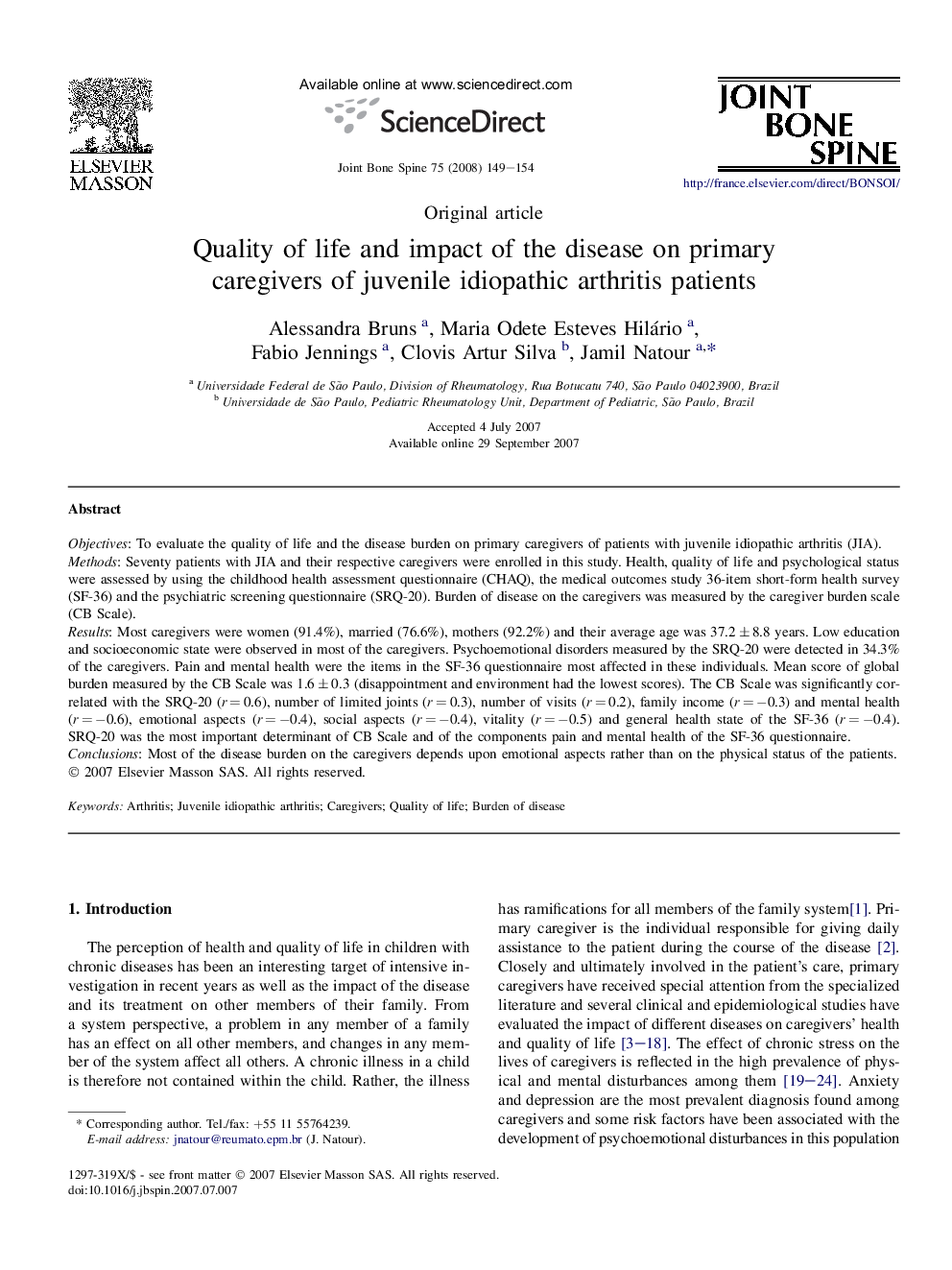| Article ID | Journal | Published Year | Pages | File Type |
|---|---|---|---|---|
| 3366899 | Joint Bone Spine | 2008 | 6 Pages |
ObjectivesTo evaluate the quality of life and the disease burden on primary caregivers of patients with juvenile idiopathic arthritis (JIA).MethodsSeventy patients with JIA and their respective caregivers were enrolled in this study. Health, quality of life and psychological status were assessed by using the childhood health assessment questionnaire (CHAQ), the medical outcomes study 36-item short-form health survey (SF-36) and the psychiatric screening questionnaire (SRQ-20). Burden of disease on the caregivers was measured by the caregiver burden scale (CB Scale).ResultsMost caregivers were women (91.4%), married (76.6%), mothers (92.2%) and their average age was 37.2 ± 8.8 years. Low education and socioeconomic state were observed in most of the caregivers. Psychoemotional disorders measured by the SRQ-20 were detected in 34.3% of the caregivers. Pain and mental health were the items in the SF-36 questionnaire most affected in these individuals. Mean score of global burden measured by the CB Scale was 1.6 ± 0.3 (disappointment and environment had the lowest scores). The CB Scale was significantly correlated with the SRQ-20 (r = 0.6), number of limited joints (r = 0.3), number of visits (r = 0.2), family income (r = −0.3) and mental health (r = −0.6), emotional aspects (r = −0.4), social aspects (r = −0.4), vitality (r = −0.5) and general health state of the SF-36 (r = −0.4). SRQ-20 was the most important determinant of CB Scale and of the components pain and mental health of the SF-36 questionnaire.ConclusionsMost of the disease burden on the caregivers depends upon emotional aspects rather than on the physical status of the patients.
